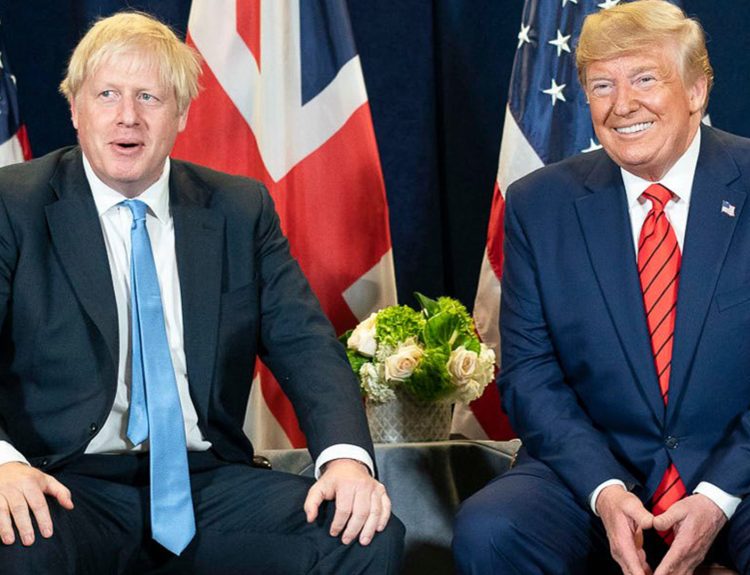Many were surprised that Donald Trump won the 2016 presidential election, but his base of supporters remained fiercely loyal. Through his tumultuous presidency, Trump’s base stood by him despite controversies and missteps that would have sunk most politicians.
Yet Trump’s base was not impervious, and key moments strained their loyalty. For all their zeal, there were times when Trump tested even his most ardent supporters. While his core supporters largely persevered, fractures emerged, revealing the limits of their devotion. Even political soulmates can reach breaking points under pressure.
The Steele Dossier (2017)
In January 2017, the publication of a dossier of intelligence memos compiled by former British intelligence officer Christopher Steele raised questions about alleged ties between the Trump campaign and Russia. The unverified allegations of collusion and kompromat outlined in the dossier fueled existing suspicions among some Republicans regarding Russian interference in the 2016 election.
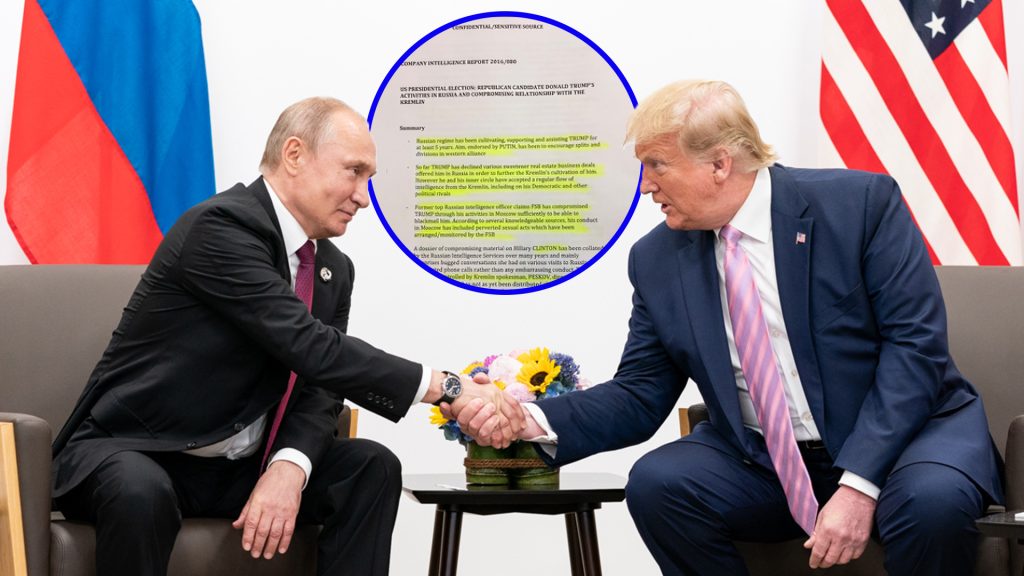
The dossier’s publication aligned with revelations that incoming National Security Advisor Michael Flynn had communicated with the Russian ambassador before Trump’s inauguration. This contact, later deemed inappropriate, prompted Flynn’s resignation – the first crack in Trump’s inner circle.
Charlottesville “Very Fine People” Remark (2017)
On August 12, 2017, violence broke out at a white supremacist rally in Charlottesville, Virginia, resulting in one death and multiple injuries. In the aftermath, President Trump stated that there were very fine people on both sides of the clashes between the white supremacists and counter-protesters. This remark shocked many Americans and was seen as a refusal to condemn racist groups outright.
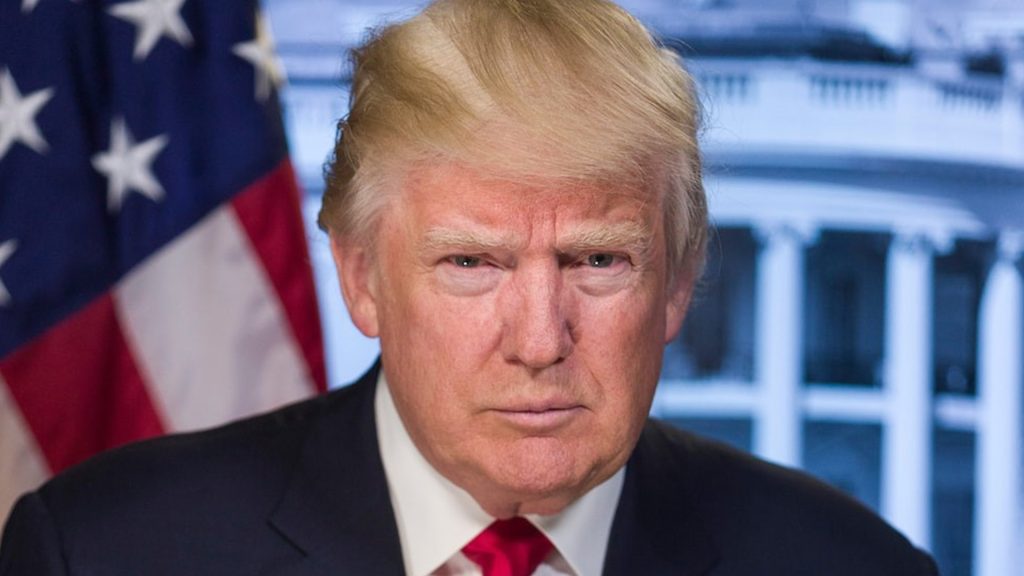
Several notable Republicans spoke out to criticize Trump’s statement. Senator David Frum asserted that the president should be unambiguously and specifically hostile to people who parade around with Nazi banners. At the same time, columnist George Will argued Trump failed a test of moral leadership. The president’s comments created clear dissent among key members of his party, who expected a firm denunciation of hate groups.
The Firing of James Comey (2017)
The abrupt dismissal of FBI Director James Comey on May 9, 2017, was a pivotal moment that shook trust in the Trump administration among some Republican lawmakers. Comey was leading an ongoing investigation into potential Russian interference in the 2016 election and possible collusion with Trump’s campaign.
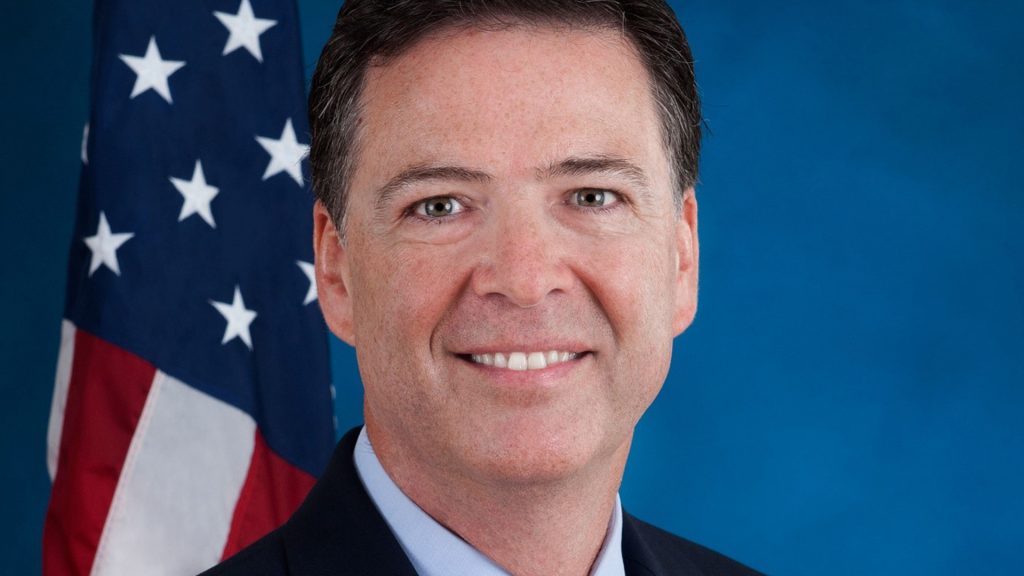
The resident’s unilateral decision to fire the individual overseeing this politically sensitive investigation raised serious concerns over potential obstruction of justice. Senator Jeff Flake of Arizona stated he could “no longer remain silent” while facts continued to emerge, indicating possible inappropriate behavior by President Trump to impede the investigation.
Transgender Military Ban (2017)
In July 2017, President Trump announced via Twitter that transgender individuals would no longer be allowed to serve in the military, citing tremendous medical costs and disruption. This reversal of the Obama administration’s 2016 policy allowing open trans service came as a shock to many.
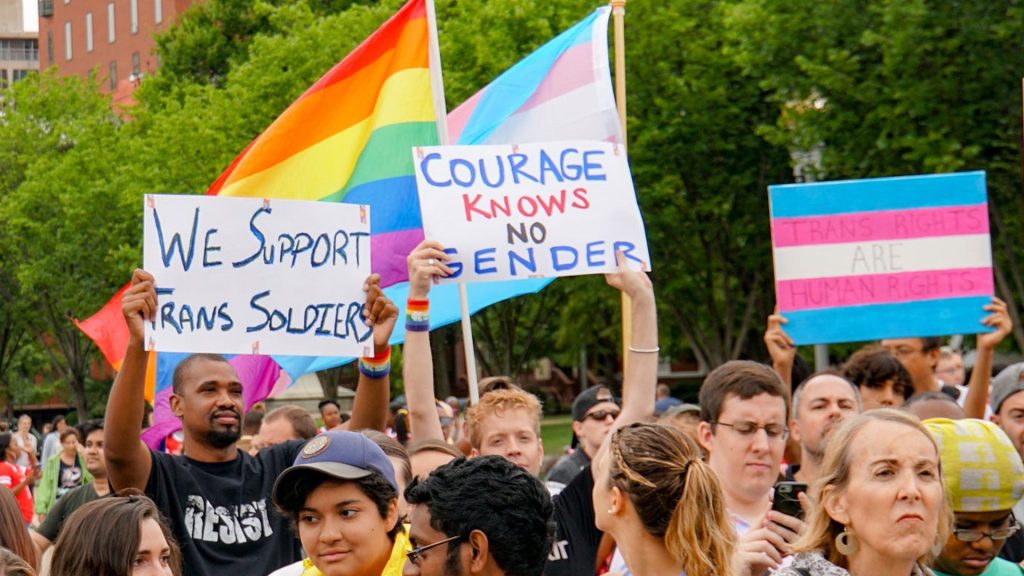
The resident’s ban drew widespread condemnation from both sides of the aisle. Veteran groups, including the American Legion, denounced the move as discriminatory and counter to military values. Republican strategist Richard Grenell, who Trump nominated as ambassador to Germany, resigned in protest.
Helsinki Summit With Putin (2018)
The 2018 Helsinki Summit between President Trump and Russian President Vladimir Putin was a pivotal moment that strained Trump’s support among some Republicans. During a joint press conference, Trump appeared to give credence to Putin’s denial of Russian interference in the 2016 election over the assessment of U.S. intelligence agencies.

This perceived siding with America’s long-time adversary over its intelligence community drew swift condemnation. Senator John McCain called it “one of the most disgraceful performances by an American president in memory.” He further stated that no prior president has ever abased himself more abjectly before a tyrant.
Zero-Tolerance Immigration Policy (2018)
The Trump administration’s zero-tolerance immigration policy at the southern border resulted in the separation of thousands of migrant children from their parents in 2018, generating widespread criticism. The policy directed border agents to criminally prosecute all adults crossing the border illegally, including those seeking asylum with children.

As a result, children were separated from their parents and detained separately. The resulting political firestorm demonstrated that even the most steadfast Trump loyalists had limits regarding policies they would endorse or defend. The separations crossed a moral line for some supporters, challenging their allegiance.
Mueller Report Investigation (2019)
The release of Special Counsel Robert Mueller’s report on Russian interference in the 2016 election sparked intense scrutiny of President Trump’s conduct. While the report did not establish criminal conspiracy with Russia, it presented concerning details about Trump’s potential obstruction of justice.
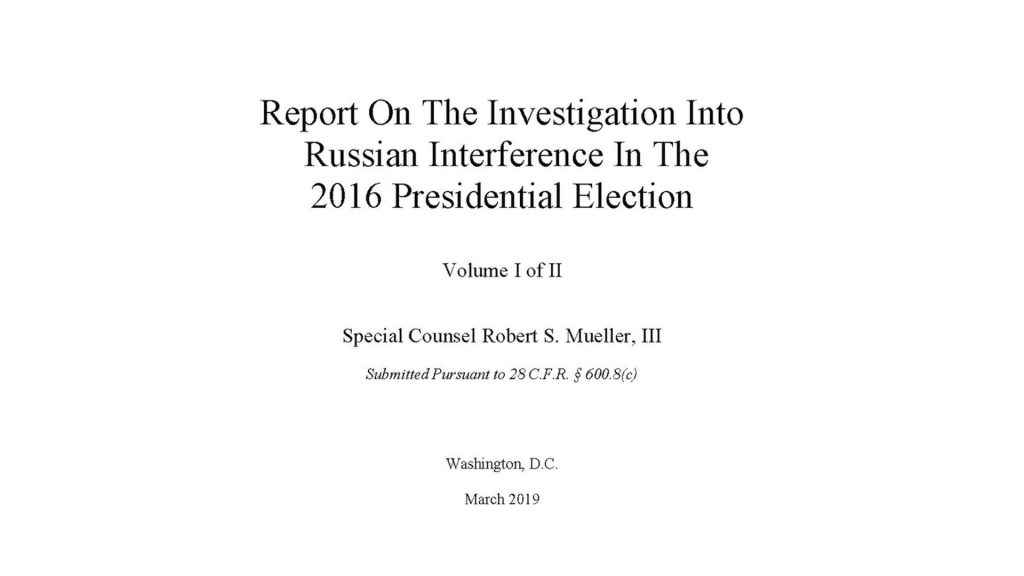
The report’s revelations caused some Republican lawmakers to speak out. Senator Mitt Romney stated he was “sickened at the extent and pervasiveness of dishonesty and misdirection by individuals in the highest office of the land, including the President.”
Ukraine Scandal and Impeachment (2019-2020)
The impeachment inquiry into President Trump’s dealings with Ukraine represented a critical moment that fractured Republican unity. Trump was accused of pressuring Ukraine’s leader to investigate his potential 2020 rival, Joe Biden, in exchange for military aid.
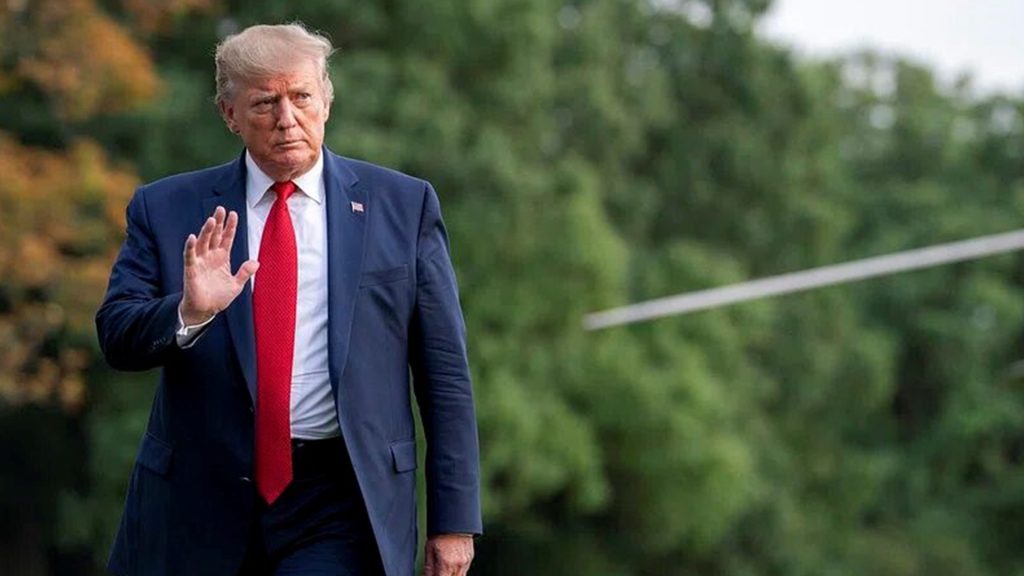
The impeachment process spotlighted growing rifts within the party over Trump’s conduct and truthfulness. For critics, it reinforced doubts about respect for ethics and the rule of law. But most Republicans united behind Trump, underscoring his enduring appeal to the base despite persistent controversy.
George Floyd Protests and Trump’s Response (2020)
The killing of George Floyd, a Black man, by a white police officer in May 2020 sparked nationwide protests against police brutality and systemic racism. With protesters demanding justice and reform, President Trump responded with inflammatory rhetoric and hardline tactics that alienated moderate Republicans.
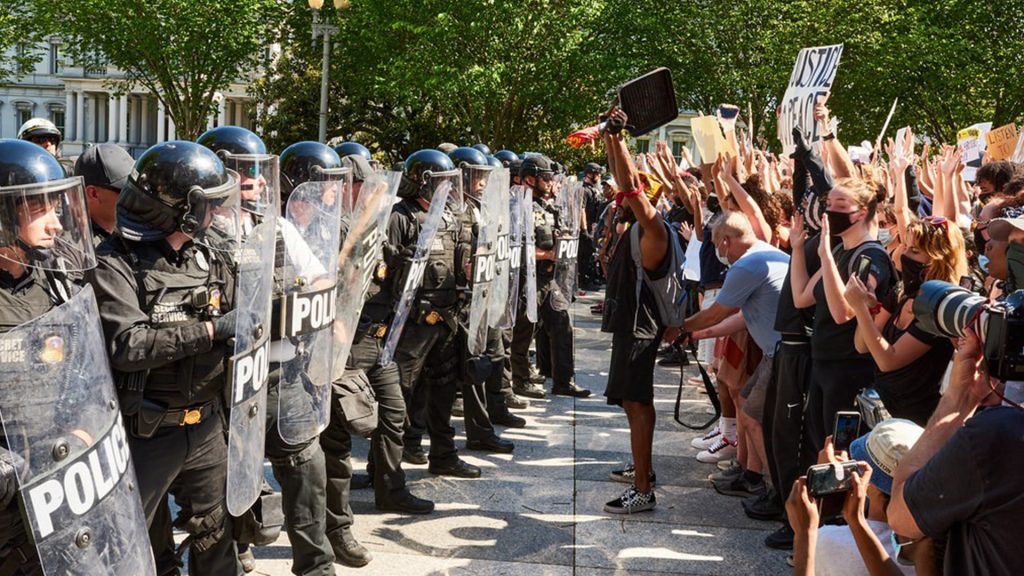
Trump characterized the overwhelmingly peaceful protests as being dominated by violent anarchists and looters. He threatened to deploy the military against protestors, tweeting, “when the looting starts, the shooting starts.” This aggressive posturing was criticized by prominent Republicans like Senators Lisa Murkowski and Susan Collins as divisive and unhelpful.
November 2020 Election Defeat and Refusal to Concede
President Trump’s defeat in the November 2020 presidential election and refusal to accept the results led to growing rifts within the Republican party. Despite no evidence of widespread fraud, Mr. Trump made repeated claims that the election was “stolen” from him.
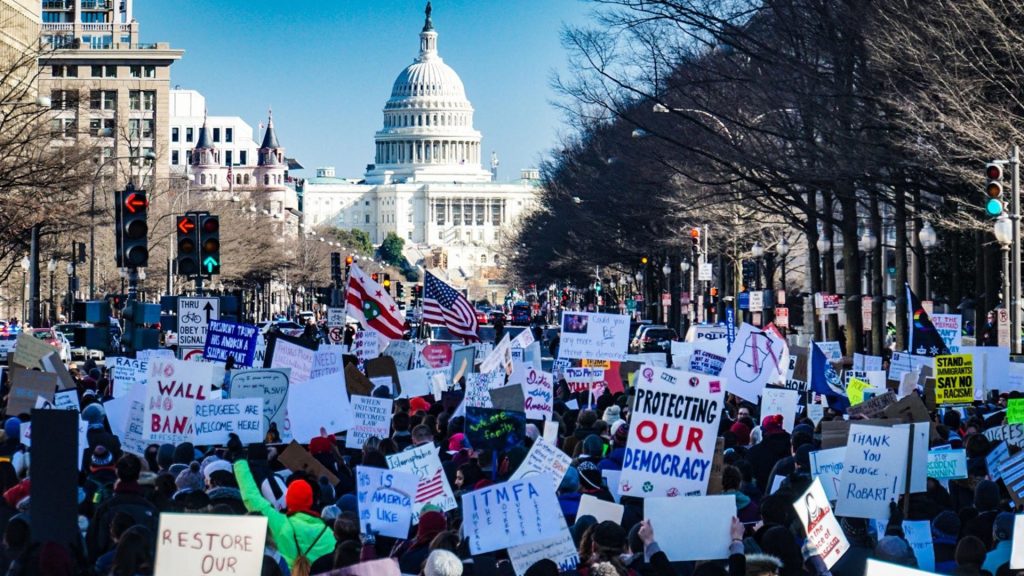
The period following the election defeat widened fractures within the party between Trump loyalists maintaining his stolen election narrative and moderate voices calling for unity and acceptance of the results. This divide would continue in the coming weeks and months.
January 6th Capitol Riot (2021)
The violent breach of the U.S. Capitol building on January 6, 2021, marked a significant moment that tested the support of Trump’s base. The attack was fueled by months of President Trump’s continued and unfounded claims that the November 2020 presidential election was “stolen” or “rigged.”

Many Congressional Republicans denounced the violence, calling it an “insurrection” that was an assault on democracy itself. Representative Liz Cheney asserted that there had never been a greater betrayal of the office of the presidency. The attack and Trump’s role in inciting it was broadly seen as a dangerous crossing of a line by members of his party.
Second Impeachment and Continued Election Lies (2021)
Even after the violent insurrection at the U.S. Capitol on January 6th, former President Trump continued to insist that the 2020 election was stolen, refusing to accept responsibility for his role in spreading misinformation and riling up his supporters.

This stubborn adherence to his “big lie” about election fraud eroded trust and support even among some staunch Republican allies. His second impeachment trial in the Senate for inciting the Capitol attack highlighted the growing rift.
Marjorie Taylor Greene and Qanon Conspiracy Theories
Congresswoman Marjorie Taylor Greene has promoted QAnon conspiracy theories and made incendiary remarks. QAnon promotes false and dangerous claims, including that Democrats are running a satanic child sex trafficking ring.
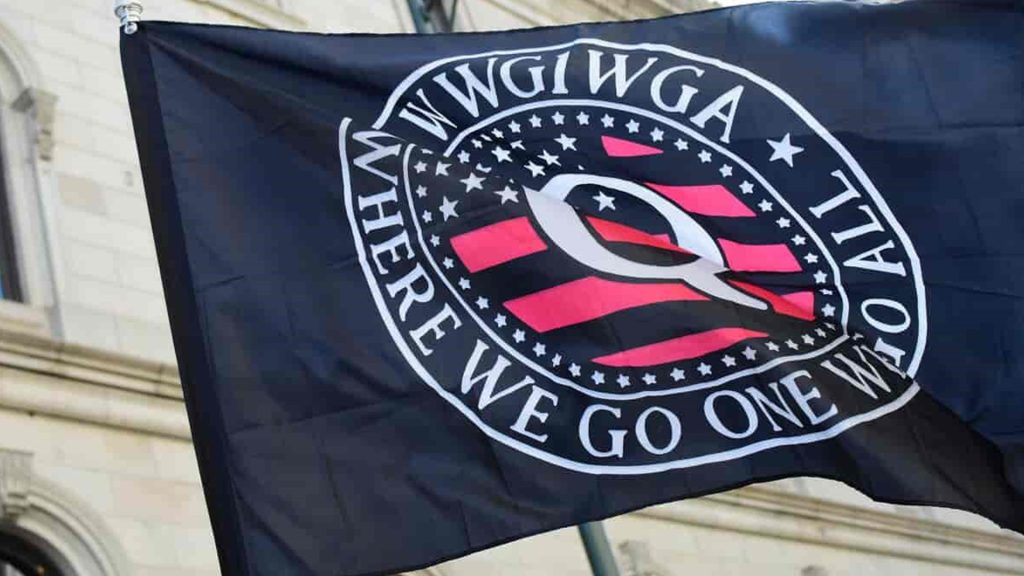
Several Republican Congress members condemned Greene’s past remarks and the spread of baseless conspiracy theories. Congressman Tom Rice stated he “cannot condone that kind of talk”, while Congressman Peter Meijer criticized her “embrace of conspiracy theories.”
January 6th Committee Hearings (2022)
The January 6th Committee hearings in 2022 presented detailed revelations about the actions and inactions of former President Trump during the Capitol attack on January 6, 2021. Over the course of eight hearings, the bipartisan House Select Committee laid out evidence indicating Trump was central in spreading claims of a stolen election, pressuring state and federal officials to overturn results, and inciting the mob that attacked the Capitol.
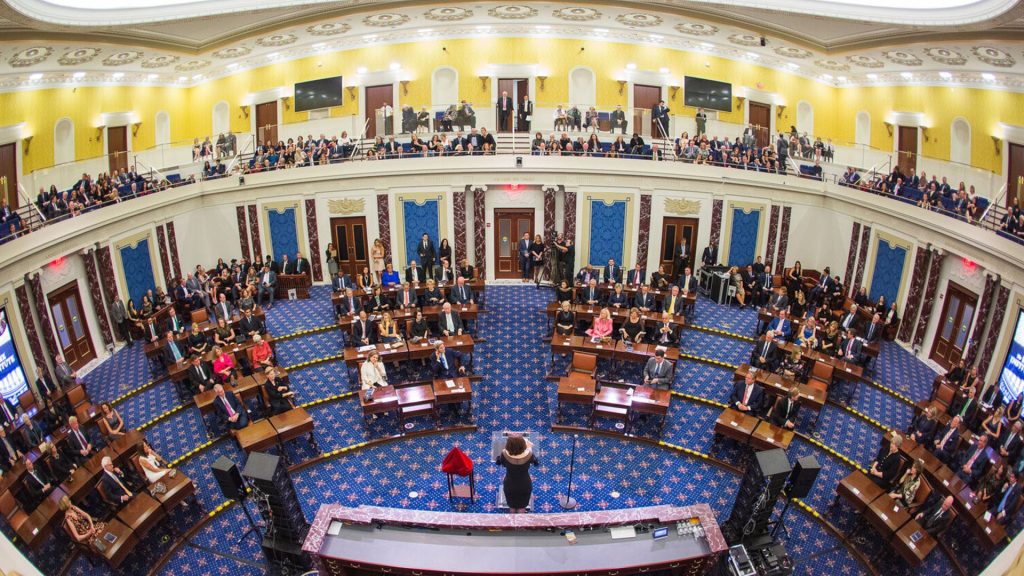
Testimony indicated key figures warned Trump his claims of election fraud were inaccurate. Former Attorney General Bill Barr stated he told Trump the Department of Justice found no evidence of widespread fraud that could have affected the election outcome.
Public Attacks on Republican Critics (2022)
Former President Trump’s continued caustic attacks on Republicans who disagreed with him, including Liz Cheney and Mitt Romney, further strained his relationships within the party in 2022. Trump repeatedly derided Cheney, calling her insulting nicknames like Crazy Liz and Low-life Lizard. He also mocked Romney’s 2012 electoral loss.
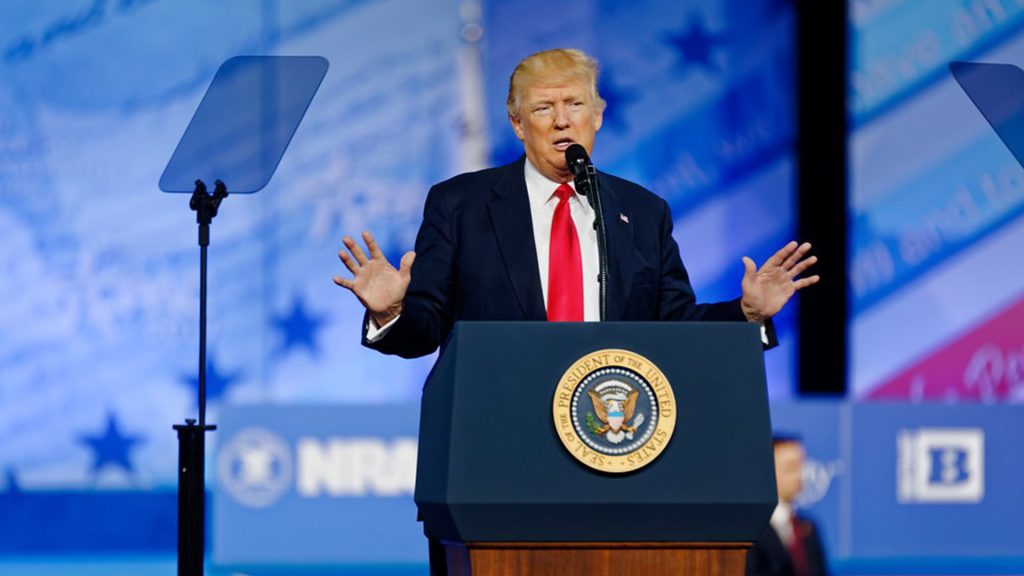
Some Republicans saw these personal attacks on well-respected party members as crossing the line into crudeness and needless divisiveness. As the New York Times reported on November 9th, 2022, Trump’s name-calling rhetoric pushed away supporters who valued party unity and political civility.




